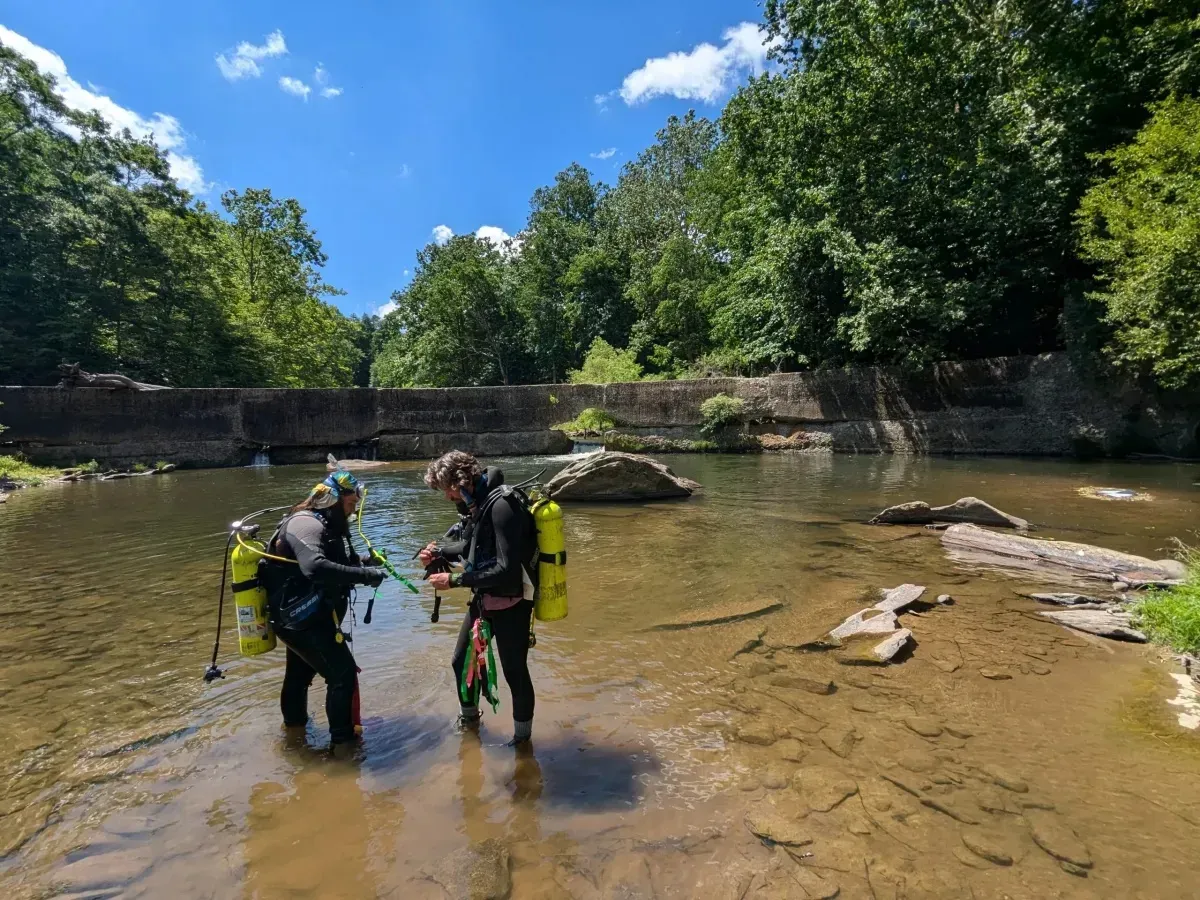
Sarah Lowery, audience director at the nonprofit Carolina Public Press, spoke with Jack Igelman, lead environment reporter at the Public Press and a Pulitzer Center grantee, about his three-part series Restraining Rivers, which uncovered a crisis in western North Carolina’s water infrastructure, from failing dams to outdated flood controls—made all the more urgent in light of Tropical Storm Helene hitting the area in September 2024. To Igelman, an Asheville resident, the stories and the research were personal.
Restraining Rivers was supported by the Pulitzer Center. The following Q&A was originally included in the Public Press’ subscriber-only Weekend newsletter on June 14, 2025. It is being re-published with permission from the Public Press.
Q: How did you decide to pursue this special series?
A: Over the last several years I’ve been working on a book about a Tennessee Valley Authority plan to build 14 dams on tributaries of the French Broad River for flood control in the 1960s. So even before Helene, I really wanted to report on whether those proposed dams would have made the French Broad River Valley more flood-resilient. Obviously that question has become so much more urgent and pressing following the storm. Through this reporting and experiencing the storm firsthand, it became really clear that communities in Western North Carolina need to consider an array of strategies to confront the challenge of flooding in the future.
Q: Did you experience any challenges during the reporting process?
A: I found that covering the aftermath of Helene was far more complicated than I expected. Flood resilience and mitigation touch so many areas, such as engineering, economics, psychology and politics. With so many different perspectives, capturing the full nuance is difficult. On top of that, this story has no neat resolution. The work of recovery and preparation is ongoing. One of the biggest challenges was distilling complex, technical issues around flood management into stories that are accessible and meaningful to a broad audience without oversimplifying the realities that communities are facing.
Q: Were there any surprising findings you came across throughout your research?
A: I’ve lived in Asheville for nearly three decades and have observed several other flooding events, including Tropical Storm Fred in 2021 and high water following two tropical storms in 2004. One thing I did discover is that widespread flooding events are relatively frequent. 1916 and 2024 are extreme, but the region was hammered in 1977, 1964 and several others. I’m still surprised at how vulnerable our communities and our economy are to flooding, and I think this beat has really underscored to me the long grind of recovery that will stretch for months and years to come.
Q: Knowing that these people, businesses and towns in WNC have been through so much, does this affect your approach to interviewing sources and the ways in which you present their stories to readers?
A: Of course I always want to be respectful of people who have been impacted by the storm in profound ways, such as losing a loved one, a business or a home. For the most part, I think people feel empowered when they have an opportunity to share their story and how Helene impacted them personally. That really gives me a strong sense of mission as a reporter and forces me to remind myself to listen carefully to people I interview and to share their stories thoughtfully.
Q: I imagine that as an Asheville resident yourself, you had your own personal experience of Tropical Storm Helene and its aftermath to contend with. How did this impact your role as a reporter on this project?
A: Absolutely. Experiencing the storm made reporting on the storm feel really personal to see it unfold in real time. Like so many people impacted by the storm, I was dealing with the loss of power and water, school closures, flooded creeks and just feeling bewildered by the power and profound devastation of Helene. I think experiencing the storm deepened my understanding of what an event like this means for people and communities on the ground. It also reinforced the responsibility I feel as a reporter to tell this story with care, urgency and accuracy, knowing that it impacted so many people and places that I and others care deeply about.

.jpg.webp?itok=VJn-LieU)



